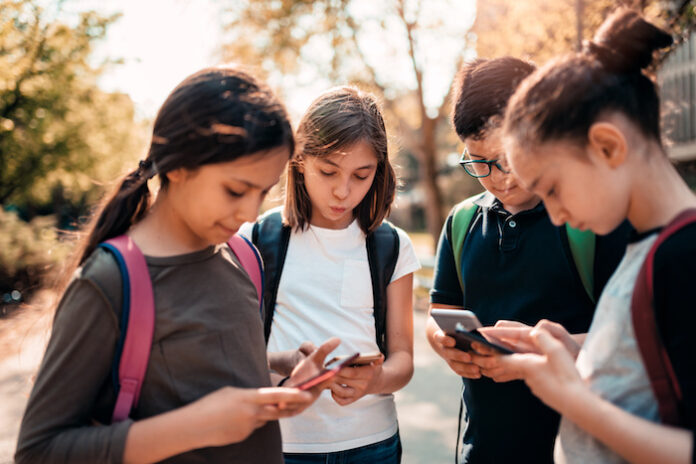Social media restrictions may be necessary as the technology becomes a blessing and a curse for schools and students, says Superintendent Verletta White of Roanoke City Public Schools in Virginia.
“It’s great for getting information out and helping us connect with our families and tell parents what’s on the horizon,” White points out. “But social media can be a distraction in class when things are bubbling up between students, and it requires us to talk about it and set boundaries and guardrails.”
Outside of education, policymakers and children’s advocates are now grappling with the idea of putting age limits on social media use. Inside K12, a growing number of educators are convinced that social media is a key culprit in a worsening teen mental health crisis.
William T. Smith, the superintendent of Point Pleasant Beach School District in New Jersey, says he’s not a fan of adding K12 regulations but some social media restrictions for minors are now warranted. “It’s important for us to pick our heads up out of the sand and look at challenges students are facing,” Smith continues. “On some level, as wonderful as these devices are, they also are a weapon to harm ourselves or harm others.”
Creating content to post on Instagram and TikTok allows students to show tremendous creativity, generate income and explore potential future careers, Smith adds. “The benefits are massive but we may have crossed a line,” he says.
Social media restrictions start with smartphones
A growing number of districts are now banning or restricting students’ smartphone use in their efforts to eliminate distractions caused by social media during school hours. Administrators in Pasco County Schools in Florida are proposing to the district’s school board an outright ban in elementary schools and limitations in middle and high schools. Middle school students would only be allowed to use their phones during lunch while high schools could also check them between classes, Superintendent Kurt Browning says.
The trick is to balance parents’ desire to keep track of their kids with educators’ need not to lose instructional time to disruptions. Kids are using phones to make phony threats against their schools via prank calls and social media posts. This, of course, forces district officials to devote time to investigating the threats and communicating with the public.
Then there’s the mental health impact of students seeking other forms of attention on social media. “Kids seek to be recognized on social media, social media consumes them,” Browning says. “I have been off social media for three years now. I found no value in it. Some of the stuff that’s out there is really messing with our kids.”
More from DA: 7 big districts land new leaders in end-of-year hiring surge
Leaders in the Colchester School District in Vermont also expect to tighten their cellphone policies before next school year, Superintendent Amy Minor says. One reason is that, since the pandemic, students have been even more attached to their phones and anxious about checking social media. “We also have seen an increase in students not interacting in a nice way with their peers on social media,” Minor adds.
More than ever, students are caught up in “comparison pressures” caused by obsessing over how other people look or dress on social media. And “a whole new category” of high school students are also increasingly comparing themselves academically—including by tracking the colleges to which their peers have been accepted, she points out.
Educators and parents need to help students realize most people only post good news on social media. “It’s generating anxiety and stress that shouldn’t be there,” Minor says. “We’re seeing a decrease in the number of coping skills that students have when not they’re not successful.”
The social media problem cannot be solved without parents helping students realize there can be serious repercussions to their social media activities, concludes Lawrence P. Filippelli, the superintendent of Lincoln Public Schools in Rhode Island who has served as a consultant on cyberbullying and cybersecurity.
“It comes down to parental control,” Filippelli asserts. “Kids are getting themselves into trouble on social media because they don’t think anything is actionable. “They’re so attached to their technology that it becomes on with them and it’s blurring the line of what’s appropriate and what’s not.”










